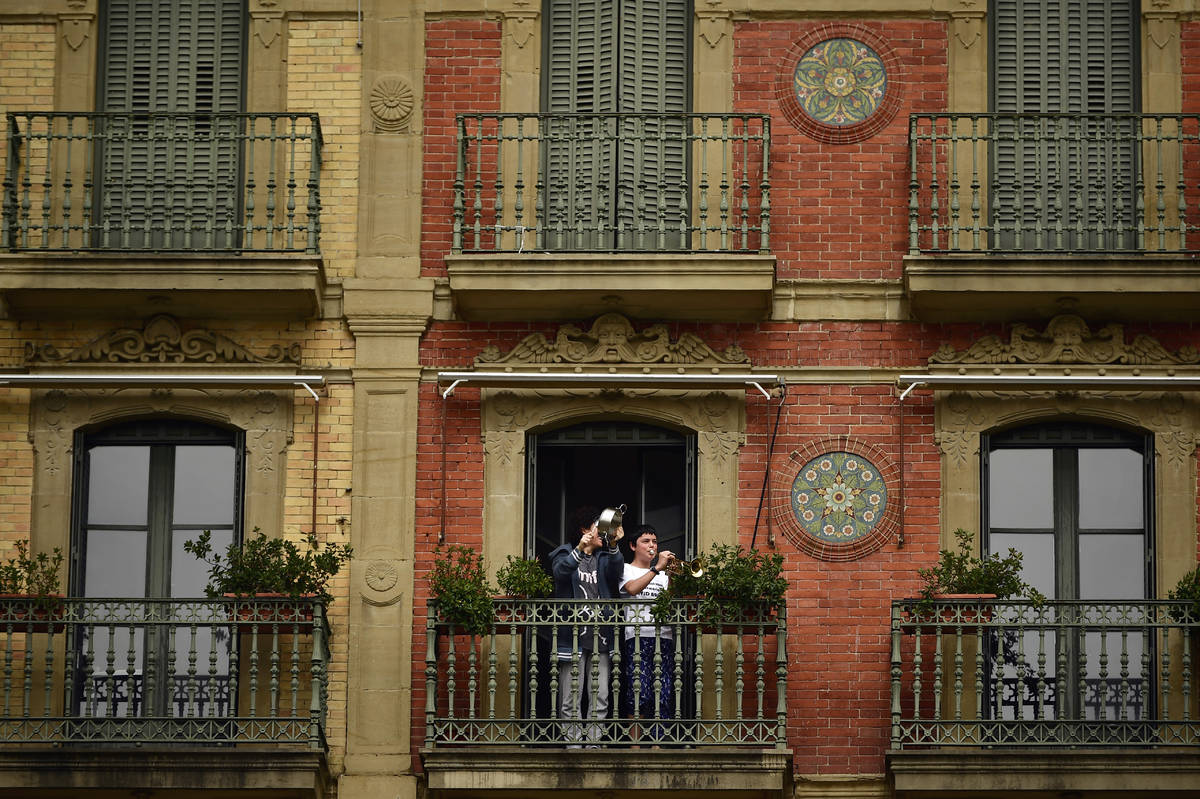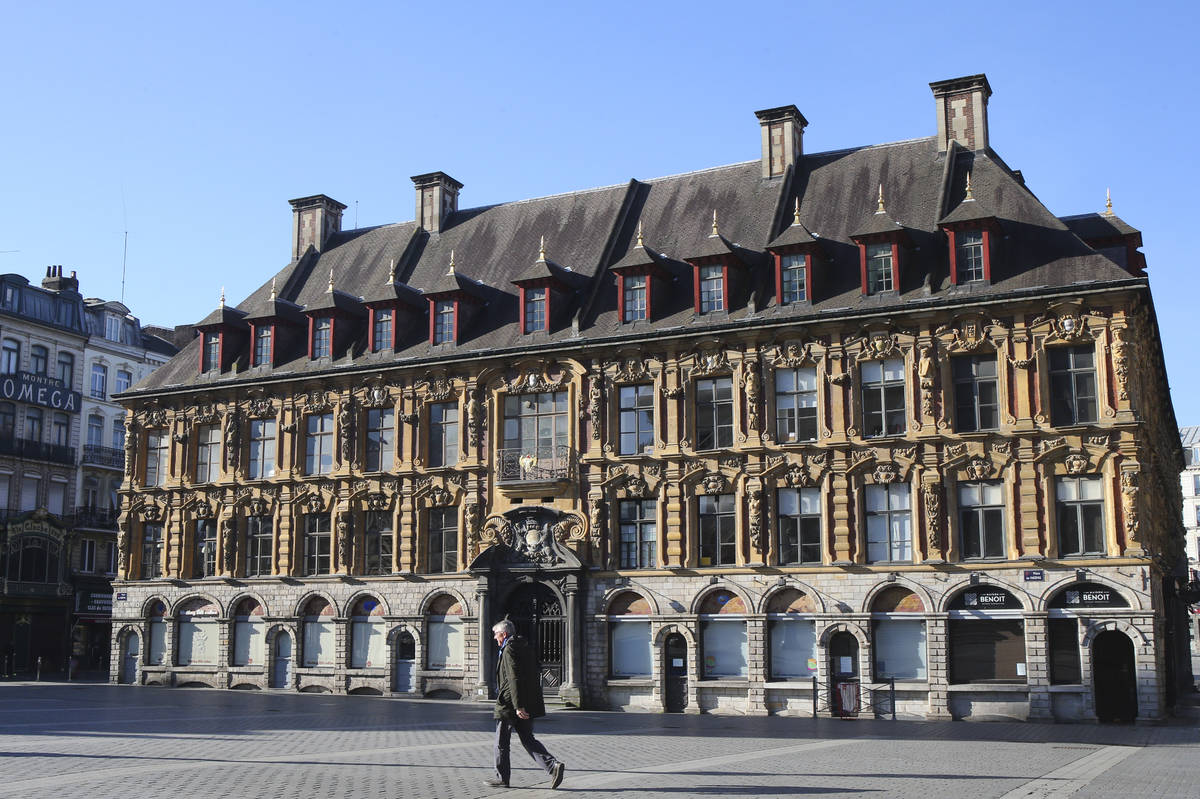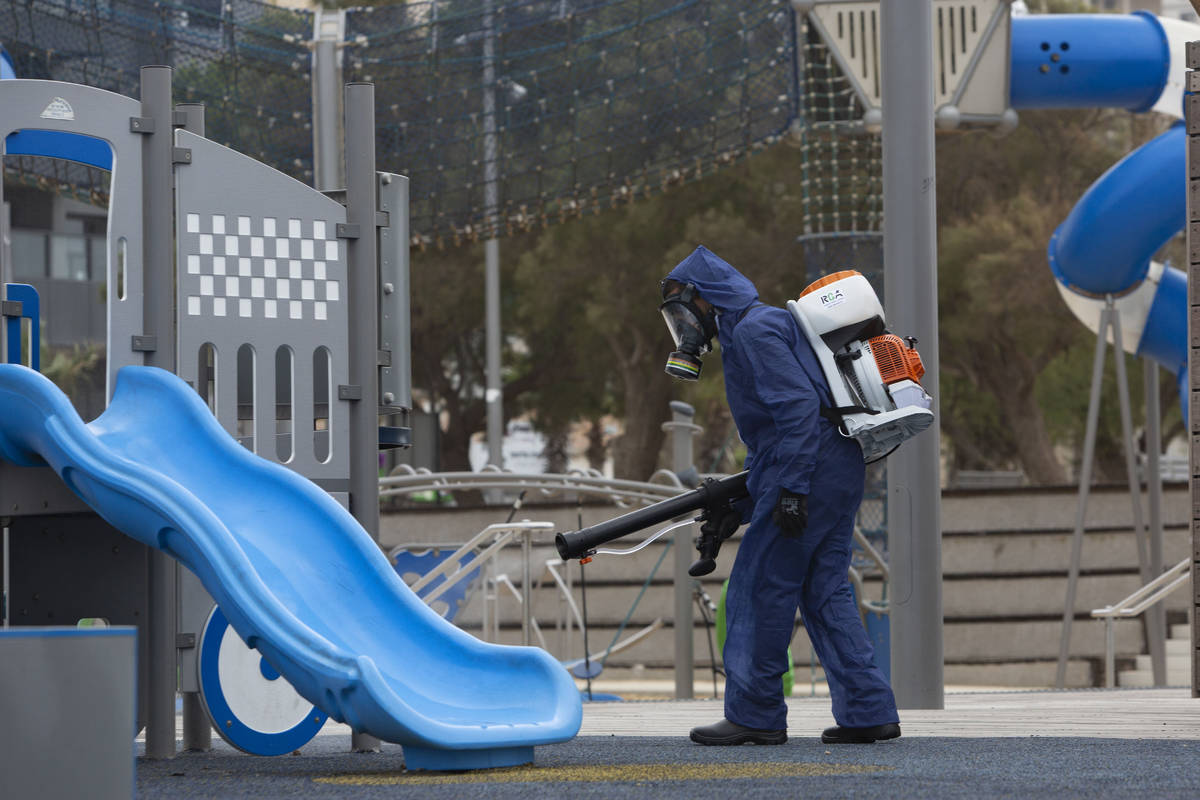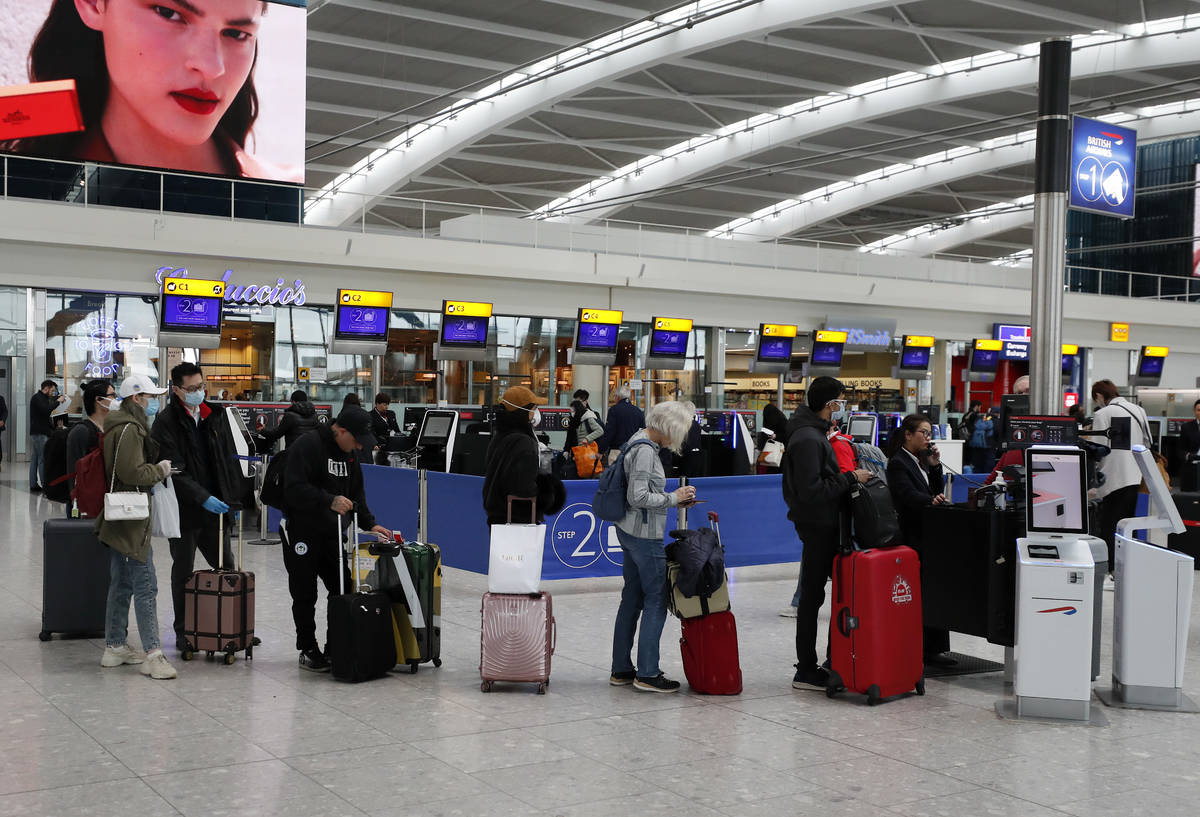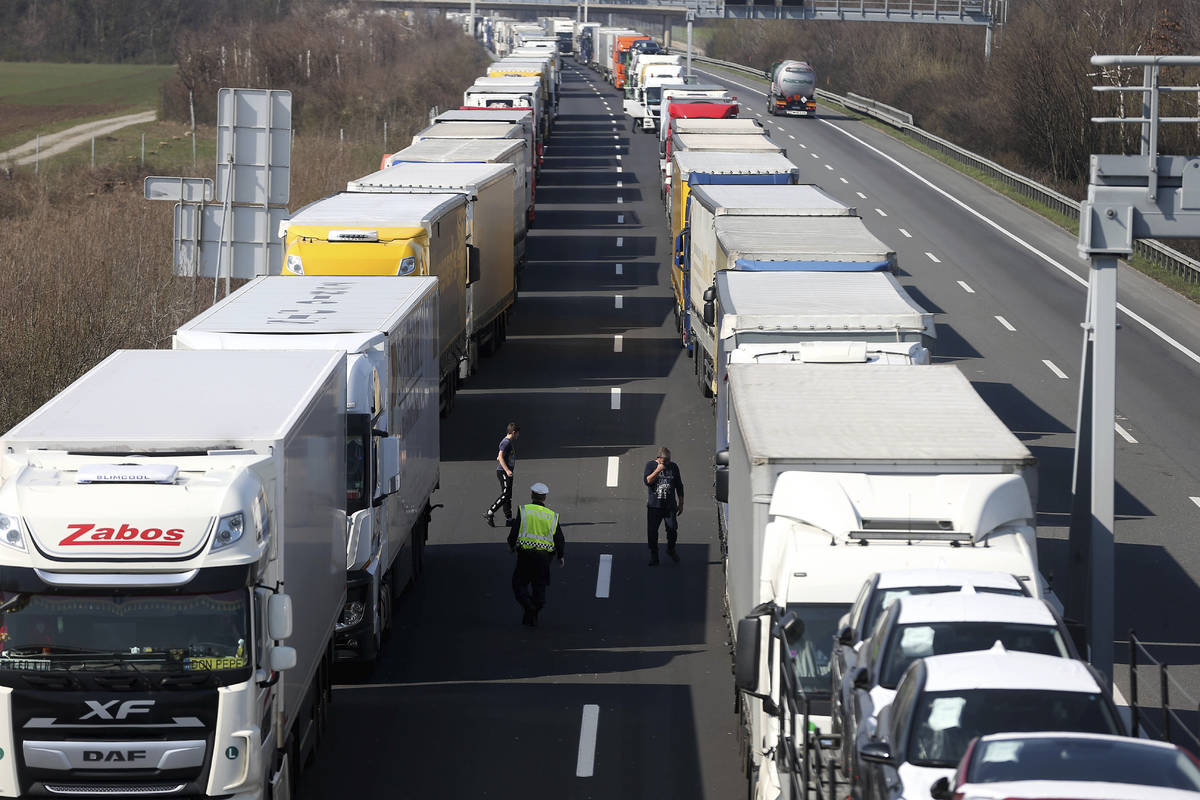Trump invokes law calling on private sector for help to fight virus
The latest on the coronavirus pandemic, which has infected more than 204,00 people and killed more than 8,200. The COVID-19 illness causes mild or moderate symptoms in most people, but severe symptoms are more likely in the elderly or those with existing health problems. More than 82,000 people have recovered so far, mostly in China.
Trump invokes Defense Production Act
President Donald Trump on Wednesday moved to invoke a federal law that allows the government to marshal the private sector to fight the coronavirus epidemic, as the economic damage mounted with word that Detroit’s Big Three automakers agreed to shut down all their factories to protect workers.
On a day of head-spinning developments, stocks tumbled again on Wall Street, falling so fast they triggered another automatic trading halt. More borders slammed shut across Europe and North America, with the U.S. and Canada agreeing to close their shared boundary to all but essential travel. And the Trump administration pressed Congress to swiftly pass a potentially $1 trillion rescue package to prop up the economy and speed relief checks to Americans in a matter of weeks.
Calling himself a “wartime president,” Trump said he would sign the Defense Production Act “in case we need it” to deal with an expected surge in cases of the virus. The law gives the president extraordinary authority to get industries to expand production and turn out vital materials.
More drastic measures worldwide
Around the globe, officials took increasingly drastic measures to fight the epidemic and the threat of a recession. California’s governor warned grimly that martial law could be imposed, while the mayor of New York said the city’s 8.6 million residents should be prepared for a near-complete lockdown. Czech authorities used emergency powers to raid a warehouse and seize hundreds of thousands of face masks.
With a growing number of Americans thrown out of work by the near-shutdown of much of the U.S. economy, Trump also said the Housing and Urban Development Department will suspend foreclosures and evictions from public housing through April.
Automakers closing US factories
Two people briefed on the matter said Wednesday that Ford, General Motors and Fiat Chrysler agreed to close their factories. The two spoke on condition of anonymity because the closings had not been announced. The move would idle about 150,000 workers, who are likely to receive supplemental pay in addition to unemployment benefits.
$3.4T income drain forecast
The U.N.’s International Labor Organization estimates that fallout from the new coronavirus outbreak could cause nearly 25 million job losses and drain up to $3.4 trillion worth of income by the end of this year.
The Geneva-based agency said “an internationally coordinated policy response” could help mitigate such losses through worker protections, fiscal stimulus, and support for jobs and wages.
ILO laid out a number of scenarios on the impact of COVID-19 on the economy, estimating an increase in worldwide unemployment of 5.3 million to 24.7 million people. That’s on top of the estimated 188 million that the agency had predicted late last year in its annual forecast.
The agency noted the global financial crisis boosted global unemployment by 22 million people.
“Falls in employment also mean large income losses for workers,” ILO said as it presented its preliminary assessment.
Governments wrangle with border closures
Governments grappled with how to implement border closures and lockdowns that caused transportation chaos and imperiled economies but which authorities said are needed to slow the spread of the virus.
European Union leaders agreed to shut down the bloc’s external borders and ban entry of most foreigners for 30 days. The United States and Canada were working on a mutual ban on nonessential travel between the two countries.
War-ravaged Middle East countries face new scourge
Long-running wars and conflicts across the Middle East have wrecked potential defenses against coronavirus outbreaks, leaving millions vulnerable in Yemen, Libya, Syria, Afghanistan, the Gaza Strip and elsewhere.
Health care systems have been gutted; war has damaged key infrastructure.
Several of the countries are carved up among opposing factions, rival claimant governments or armed groups, impeding any possible nationwide strategies to protect public health.
Further complicating the response in countries with long-running conflicts, hundreds of thousands of people driven from their homes by fighting are crowded in close quarters in tent camps or improper housing.
Prison inmates seek compassionate release
America’s nearly 7,000 jails, prisons and correction facilities are an ideal breeding ground for coronavirus, as dangerous as nursing homes and cruise ships but far less sanitary. That has prompted some inmates to plead for compassionate release or home detention. Among them are President Donald Trump’s former personal attorney, Ponzi schemer Bernard Madoff, the former head of the Cali drug cartel and dozens of inmates at New York City’s Rikers Island, part of a jail system that lost an employee to the virus this week.
Respecting personal space
The novel coronavirus has rapidly redefined the concept of respecting personal space for Italians, as well as for South Koreans, Filipinos, Americans, Spaniards and citizens of many other crowded parts of the world.
In hard-hit Italy, a nationwide decree that took effect last week obliges people to stay at least 1 meter (about 40 inches) apart.
Overnight, habits were turned upside down in a tactile society where walking arm-in-arm with friends, kissing neighbors in greeting and patting the heads of babies are the norm. Whether acting under government orders or following basic public health advice, people are putting distance between themselves to keep coronavirus away.
Americans find it hard to do nothing
Americans are used to thinking themselves as the kind of people who fight crises with tough action. That is making the key recommendation in this pandemic — staying home — hard for many people.
The central mythology across much of the country’s history, from the Puritans to the frontier to 9/11, has been about getting up and going out to do what needs to be done — not staying home, being quiet and practicing what can look a whole lot like inaction.
A recent meme popping up everywhere on social media this week says: “Your grandparents were called to war. You’re being called to sit on your couch. You can do this.”
Staying home also is proving challenging for people in France and Italy, where police are ticketing individuals without valid reasons for being out and about.
French army evacuating critical infected patients
In an unprecedented move during peacetime, the French army has started evacuating critical coronavirus patients from eastern France, the country’s worst hit region by the pandemic.
French Defense Minister Florence Parly said six patients were being transferred Wednesday on an Airbus military plane to ease the pressure on the local hospitals of Mulhouse and Colmar. They were being moved to military hospitals in southern France. The transfer is expected to be the first of several.
In an address Monday, French President Emmanuel Macron announced that a makeshift army hospital will be constructed shortly in eastern France. It will house around 30 intensive care beds.
France is Europe’s third worst-hit country in terms of fatalities from COVID-19. Health authorities report at least 7,730 confirmed cases, including 175 who have died.
Canada defers tax payments
Canadian Prime Minister Justin Trudeau says his government is deferring tax payments until August, providing a wage subsidy for small business and pausing student loan payments amid the pandemic.
Trudeau says government is focused on making sure Canadians have the money they need to support their families, buy groceries and pay the rent. Up to $82 billion Canadian ($56.4 billion) is being spent. The money is about 3% of Canada’s gross domestic product.
Trudeau says he will provide employers of small businesses with a temporary wage subsidy equal to 10% of salary paid to employees, for three months. He says this will encourage employers to keep staff on the payroll.
Trudeau made the announcement outside his residence where he is self-isolating after his wife tested positive for the virus. He says she is OK but experiencing flu-like symptoms and headaches. The prime minister says he and his three kids are not showing symptoms.
Cruise ship headed to French port
The trans-Atlantic cruise ship Costa Luminosa, which has several COVID-19 cases among its passengers, is heading for the French Mediterranean port of Marseille.
More than 200 Americans are among the over 1,400 people on the cruise that French authorities say will arrive in Marseille port waters Thursday. It’s not known if French authorities will let the ship in. It’s unlikely they will let the passengers disembark, given the current stringent anti-virus movement rules imposed in the country.
The ship was allowed to stop in Tenerife in Spain on Sunday and offload three people who needed to be evacuated and hospitalized and their spouses. The rest of the passengers were barred from disembarking in the Spanish Canary Islands.
On March 13, officials said Puerto Rico’s first virus case was a 68-year-old Italian woman who arrived on the Costa Luminosa with symptoms. She was taken to a hospital in San Juan and confirmed to be infected. Puerto Rico’s government has since banned cruise ship dockings.
Half of world’s students not in class
UNESCO says around half the world’s student population is now out of school because of the global virus pandemic.
The latest school closures cover 102 countries with smaller, localized shutdowns in others for a total of 850 million students, from preschools to universities. A week ago, school shutdowns covered just 15 countries, the United Nations agency said.
UNESCO said Wednesday that education systems are using both high- and low-tech solutions to bridge the gaps, including video classes and radio programming.



